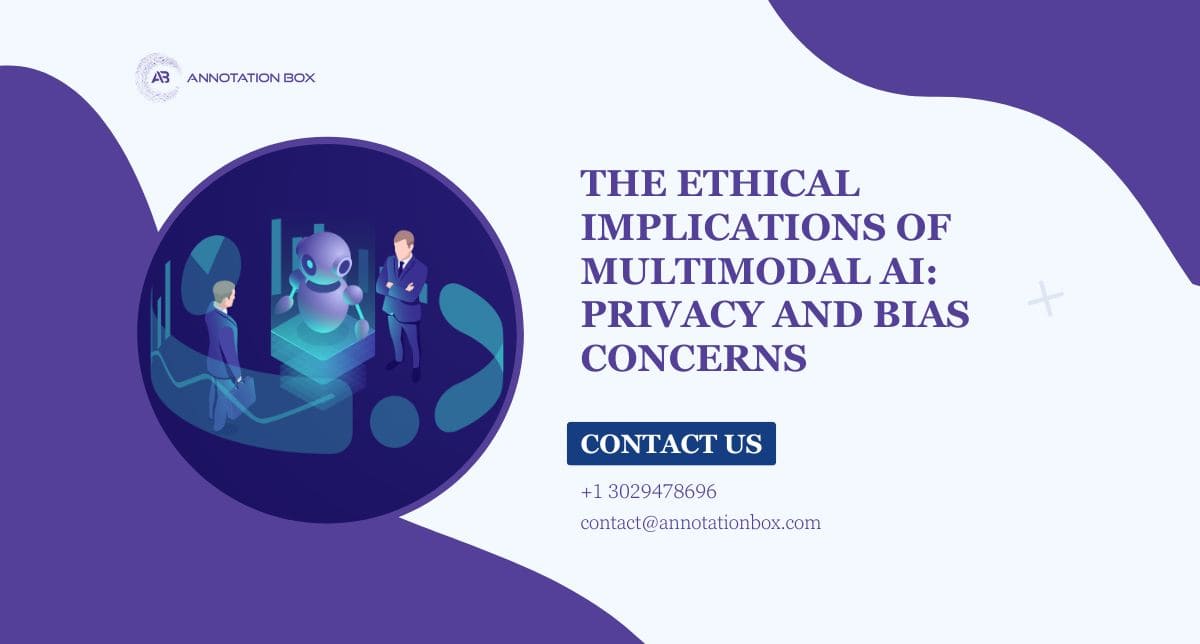


The advent of MultiModal AI has transformed the technological landscape
The advent of MultiModal AI has transformed the technological landscape, integrating various data types such as text, images, audio, and video to perform complex tasks. While this innovation presents immense potential, it also raises significant ethical questions, particularly concerning privacy and bias. As these systems increasingly influence decision-making, a closer examination of their ethical implications becomes essential.
One of the primary concerns associated with MultiModal AI is privacy. These systems require vast amounts of data to function effectively, often collecting sensitive personal information. For instance, wearable devices, smart home assistants, and surveillance systems contribute to the growing datasets feeding multimodal algorithms.
However, the sheer volume and diversity of this data pose challenges for ensuring adequate privacy protections. The aggregation of text inputs, facial recognition data, and voice recordings creates opportunities for misuse. If robust Data Annotation services fail to anonymize or secure this information, it can lead to breaches that compromise personal security.
Moreover, these algorithms often operate in a black-box manner, meaning users are unaware of how their data is processed or shared. Such opacity undermines trust and raises questions about the accountability of companies utilizing Annotation services to label and refine their datasets.
Bias is another critical ethical issue in MultiModal AI systems. Since these technologies rely on annotated datasets to train algorithms, the quality and diversity of these datasets significantly influence the outcomes. Poorly managed Data Annotation services can unintentionally embed biases into the model, resulting in skewed predictions and unfair treatment.
For example, in healthcare applications, biases in training data can lead to disparities in diagnosis or treatment recommendations for certain demographic groups. Similarly, in recruitment tools, biased annotations in resumes or interview data may perpetuate gender or racial discrimination.
To address bias, organizations must prioritize ethical data practices at every stage of development. Comprehensive Annotation services should involve diverse teams to ensure an inclusive approach to dataset creation. Furthermore, transparency in how models are trained and validated is critical to identifying and mitigating biases early in the process.
Implementing regular audits and third-party reviews can also help uncover hidden biases within multimodal systems. Techniques such as explainable AI (XAI) are emerging as powerful tools to improve accountability by providing insights into decision-making processes.
Governments and regulatory bodies play a crucial role in setting guidelines for MultiModal AI. Policies that mandate privacy-by-design frameworks can ensure data protection measures are embedded from the outset. Similarly, regulations requiring detailed documentation of Data Annotation services can promote accountability in handling sensitive information.
Furthermore, adopting ethical AI guidelines that emphasize fairness, transparency, and inclusivity can help mitigate bias concerns. Collaborative efforts between policymakers, technologists, and ethicists are essential to navigate the complexities of this rapidly evolving domain.
The transformative potential of MultiModal AI is undeniable, but its widespread adoption must be approached with caution. Balancing innovation with ethical considerations requires a multi-faceted approach that integrates robust Data Annotation services, transparent practices, and regulatory oversight.
By fostering a culture of accountability and inclusivity, stakeholders can ensure that these technologies serve society equitably while minimizing risks to privacy and fairness. The challenge lies not just in advancing the capabilities of MultiModal AI, but in doing so responsibly, with an unwavering commitment to ethical principles.
The ethical implications of MultiModal AI are far-reaching, particularly in terms of privacy and bias. As organizations increasingly rely on Annotation services to refine their datasets, the importance of transparency and accountability cannot be overstated. With proactive measures and a commitment to ethical innovation, society can harness the benefits of these technologies while safeguarding individual rights and ensuring equitable outcomes.
